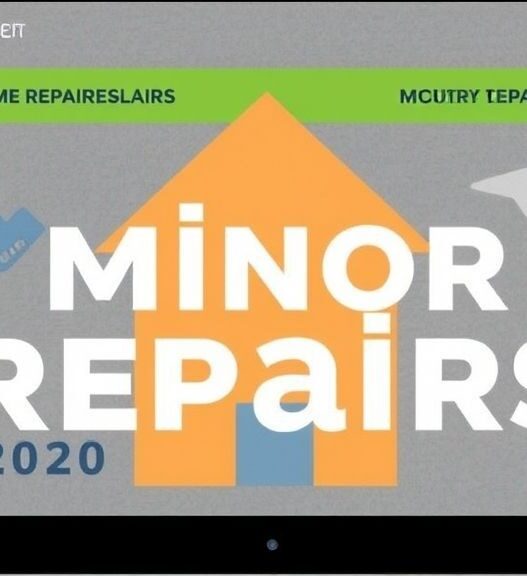Effective Guide: Minor Repairs in Reading, UK
Introduction
Is your home showing small signs of wear and tear? Do you notice minor issues needing attention? Many homeowners face these common problems. Addressing minor repairs quickly saves you money. It also prevents bigger issues later on. This guide helps you tackle minor repairs effectively. We focus on homes in Reading, UK. You will learn how to plan, budget, and complete these tasks. Let’s make your home in Reading more comfortable and safe. This guide is your first step.
Planning
Proper planning is essential for any home project. This is true even for minor repairs. A good plan saves time and reduces stress. It helps you gather the right tools. It also ensures you have all necessary materials. Think about the scope of your minor repairs. Consider what skills you already possess. Decide if you need professional help. This section helps you prepare thoroughly. It makes your repair journey smoother.
Key Considerations
Before starting any minor repairs, think about these points. They will guide your project. Careful thought prevents common mistakes.
- Assess the Damage Accurately: First, understand the problem fully. Is it a small crack or a larger structural issue? A leaking tap might just need a new washer. A damp patch could mean a bigger pipe leak. Proper assessment helps you choose the right fix. It also helps you buy correct materials. Do not guess the problem. Investigate it thoroughly. This step is crucial for all minor repairs.
- Gather Necessary Tools and Materials: Make a list of everything you need. Do you have a screwdriver set? Is your drill charged? Do you need specific caulk or paint? Check your toolbox before you start. Buy any missing items in advance. Local hardware stores in Reading stock many supplies. Having everything ready prevents delays. It makes the job much easier.
- Consider Your Skill Level: Be honest about your abilities. Some minor repairs are simple. Others require more specific skills. Fixing a wobbly chair is easy for most. Rewiring a light switch needs electrical knowledge. Do not attempt tasks beyond your comfort zone. It is safer to call a professional. They can handle complex minor repairs.
- Set a Realistic Budget: Even small jobs have costs. Materials add up quickly. Tools can be an investment. Get quotes for materials if unsure. Factor in potential unexpected expenses. A small buffer in your budget is wise. This prevents financial surprises. It keeps your minor repairs affordable.
- Prioritize Your Repairs: You might have several minor repairs. Decide which ones are most urgent. A leaking roof needs immediate attention. A small chip in paint can wait. Prioritizing helps you manage your time. It also helps you manage your resources. Focus on critical issues first. Then move to less urgent minor repairs.
Cost Analysis
Understanding the costs involved is vital. Even minor repairs can vary in price. The cost depends on several factors. These include the type of repair. It also depends on materials needed. Whether you do it yourself or hire a pro affects the price. This section helps you estimate expenses. It provides a general idea of costs in Reading.
Price Comparison
Here is a general price comparison. These are typical costs for minor repairs. Prices can vary based on complexity. They also depend on the specific tradesperson. Always get multiple quotes. This ensures you get a fair price. This table gives you a starting point.
| Type of Minor Repair | DIY Estimated Cost (Materials Only) | Professional Service Estimated Cost (Labour & Materials) |
|---|---|---|
| Leaky Tap Fix | £5 – £20 (washer, O-rings) | £60 – £120 (plumber visit) |
| Small Wall Crack Repair | £10 – £30 (filler, sandpaper, paint) | £80 – £150 (handyman visit) |
| Door Hinge Tightening | £2 – £10 (screws, lubricant) | £50 – £90 (handyman visit) |
| Grout Repair (Small Area) | £15 – £40 (grout, tools) | £70 – £130 (tiler/handyman) |
| Dripping Toilet Flapper | £10 – £25 (new flapper) | £70 – £130 (plumber visit) |
| Loose Electrical Socket | £5 – £15 (new screws, box) | £90 – £180 (electrician visit) |
Remember these are estimates. Prices can change. Always ask for a detailed quote. Especially for more complex minor repairs. Many local tradespeople in Reading offer free estimates. Compare these quotes carefully. Look at what is included.
Step-by-Step Guide
Many minor repairs are simple to do yourself. This section provides general DIY instructions. These steps apply to many common household fixes. Always prioritize safety first. Wear protective gear if needed. Read all product instructions carefully. Do not rush the process. Take your time to do it right.
DIY Instructions
Follow these general steps for most minor repairs. Adapt them to your specific task.
1. Identify the Problem Clearly: Look closely at the issue. What exactly is wrong? Where is the damage located? Take photos if it helps. This helps you understand the scope. It also helps you explain it to others.
2. Research the Solution: Use online resources. Watch video tutorials. Read articles about your specific minor repairs. Many guides exist for common issues. Learn the correct method. Understand the tools you will need.
3. Gather All Supplies: Collect every tool and material. Place them near your work area. This saves you trips back and forth. Ensure you have enough of everything. Double-check your list.
4. Prepare the Work Area: Clear the space around the repair. Move furniture out of the way. Lay down drop cloths or old sheets. This protects your floors and belongings. Ensure good lighting.
5. Ensure Safety First: Turn off power if working with electricity. Shut off water if working with plumbing. Wear gloves, safety glasses, or a mask. Follow all safety guidelines. Your well-being is most important.
6. Perform the Repair: Follow your researched steps carefully. Work slowly and methodically. Do not force anything. Use the right tools for each task. If unsure, stop and re-evaluate.
7. Clean Up Thoroughly: Remove all debris and waste. Put tools back in their place. Wipe down surfaces. Proper cleanup makes the job feel complete. It also leaves your home tidy.
8. Test the Repair: Check if your fix worked. Turn water back on. Test the light switch. Observe the repaired area. Make sure the minor repairs are successful. If not, re-evaluate the problem.
For example, fixing a leaky tap:
- Turn off the water supply to the tap.
- Cover the drain with a cloth. This prevents losing small parts.
- Use a screwdriver to remove the tap handle.
- Unscrew the packing nut.
- Remove the old washer or O-ring.
- Replace it with a new, correct size washer.
- Reassemble the tap parts in reverse order.
- Turn the water supply back on slowly.
- Check for any remaining leaks. This completes your minor repairs.
Maintenance Tips
Completing minor repairs is a great achievement. However, ongoing maintenance is also important. Regular care prevents future problems. It extends the life of your home’s components. It also helps you spot new issues early. Proactive maintenance saves you money. It keeps your home in Reading in top condition.
Long-Term Care
Follow these tips for long-term home care. They help prevent the need for more minor repairs.
- Regular Inspections: Walk through your home regularly. Look for small signs of wear. Check for drips, cracks, or loose fittings. Early detection prevents major damage. This simple habit saves you money. It keeps your home healthy.
- Address Issues Promptly: Do not ignore small problems. A tiny leak can become a big flood. A loose screw can lead to a broken fixture. Fix minor repairs as soon as you notice them. This prevents escalation. It keeps your home safe.
- Keep Your Home Clean: Dust and grime can hide problems. They can also cause wear. Regular cleaning helps you spot issues. It also keeps components working smoothly. A clean home is a well-maintained home.
- Understand Your Home’s Systems: Learn how your plumbing works. Know where your main water shut-off is. Understand your electrical panel. This knowledge helps you act fast. It is crucial during emergencies. It also helps with minor repairs.
- Seasonal Checks: Perform specific checks each season. In autumn, clear gutters. In winter, check for drafts. In spring, inspect the roof. These seasonal tasks prevent common issues. They keep your home ready for any weather. This proactive approach reduces future minor repairs.
Conclusion
Tackling minor repairs is a rewarding task. It helps you maintain your home’s value. It also ensures your comfort and safety. This guide provided a clear roadmap. You learned about planning and costs. You also got step-by-step instructions. Remember to assess carefully. Always prioritize safety. Do not hesitate to seek professional help. Especially for complex minor repairs. Regular maintenance keeps your home in Reading in excellent shape. You can handle many common issues yourself. This empowers you as a homeowner. Keep this guide handy for your next project.




















